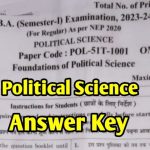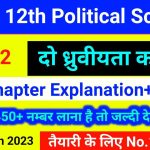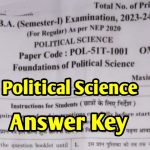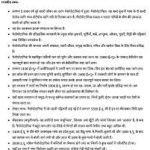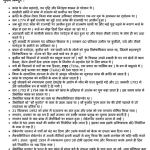Political Science is an important subject in Class 11 that helps students understand the political system and governance in India and across the world. It covers fundamental concepts related to politics, the role of the state, government institutions, and political ideologies. In this article, we will provide study material, including lecture notes, study guides, summaries, and more to help you prepare for exams effectively.
Lecture Notes
Lecture notes are one of the essential tools to understand any subject in-depth. For Class 11 Political Science, these notes cover a range of topics like Democracy, Federalism, Political Theories, and Comparative Politics. Each topic will be discussed in simple language to ensure that you grasp the concepts clearly. These notes are designed to provide a clear and concise explanation of each chapter, helping you to understand complex ideas without feeling overwhelmed.
Study Guides
A study guide is a great way to summarize and review the important concepts and topics. For Political Science, these guides break down the syllabus and highlight the most important points that are likely to appear in exams. Study guides typically include a brief explanation of each chapter, key terms and definitions, important theories, and concepts to remember. They also help you stay organized and focused on what needs to be studied for your exams.
Textbook Summaries
Summaries of textbooks provide a condensed version of the chapters, making it easier to remember the essential points. The Class 11 Political Science textbook is divided into sections that cover a variety of political systems and ideologies. The summaries simplify the content, focusing on the main ideas and concepts. Reading textbook summaries will help you refresh your memory and identify areas you need to focus on before exams.
Flashcards
Flashcards are a useful tool for memorizing terms, definitions, and important concepts. These can be used to review key topics, theories, and political figures that are part of the Class 11 Political Science syllabus. You can make flashcards for important chapters such as the Constitution of India, Political Parties, and Electoral Systems. By using flashcards, you can test your knowledge and improve your memory retention.
Class Handouts
Class handouts are often provided by teachers to reinforce what was discussed during the lessons. These handouts contain important notes, additional explanations, and examples that can help clarify difficult topics. They are a valuable resource to review before exams as they typically contain detailed information on the most critical aspects of the syllabus.
Research Notes
Research notes are a detailed collection of information on a particular topic. For Class 11 Political Science, research notes can help students dive deeper into political concepts like Democracy, Secularism, and the Role of Political Parties in India. These notes often include additional perspectives, case studies, and real-world examples that will help you understand the theoretical aspects of politics more clearly.
Annotated Readings
Annotated readings are materials where the key points of a text are highlighted and explained with comments and notes in the margins. For Political Science, annotated readings help students analyze the core ideas in textbooks, articles, and other resources. These readings will make it easier to understand political ideologies and concepts, such as the various political theories and philosophies.
Homework Solutions
Homework solutions are important for students to check their understanding of the topics they study. Political Science homework usually involves writing essays, answering questions, or solving problems related to political theory. By reviewing the solutions, you can learn how to structure your answers, identify the main points, and understand the reasoning behind the answers.
Exam Preparation Materials
Exam preparation materials are a collection of study resources that can help students get ready for their final exams. These materials may include sample papers, previous years’ question papers, and suggested answer formats. They help students understand the exam pattern and focus on the important topics that are likely to be tested.
Lab Reports
Although Political Science is a theoretical subject, there may be assignments or projects that require students to conduct research or analyze political events. Lab reports involve documenting your findings, analyzing the data, and presenting your conclusions. In Political Science, lab reports can be used to explore case studies, political campaigns, or the workings of the Indian government.
Mind Maps
Mind maps are visual representations of ideas and concepts, which help students organize their thoughts and study efficiently. For Political Science, mind maps can be used to show the connections between different political ideologies, concepts, and real-life examples. They help you break down complex topics into simpler, more manageable pieces.
Practice Quizzes
Practice quizzes are short tests that help you assess your knowledge of the subject. These quizzes typically consist of multiple-choice questions, true/false questions, or short-answer questions. They help you identify areas where you need more practice and improve your understanding of political concepts. Practice quizzes also help you get familiar with the type of questions that may appear on your exams.
Sample Problems with Solutions
Sample problems with solutions are designed to give you a better understanding of how to solve complex political science problems. These problems may involve analyzing political issues, explaining political theories, or comparing political systems. By studying sample problems, you will learn the proper techniques for approaching these types of questions and develop your critical thinking skills.
Glossaries or Vocabulary Lists
Political Science involves understanding a wide range of terms and concepts that may be new to you. Glossaries or vocabulary lists provide definitions for the key terms used in political science. These lists include terms like “Democracy,” “Constitution,” “Secularism,” and “Federalism,” among others. By learning the meaning of these terms, you will be able to better understand the political theories and concepts covered in the syllabus.


